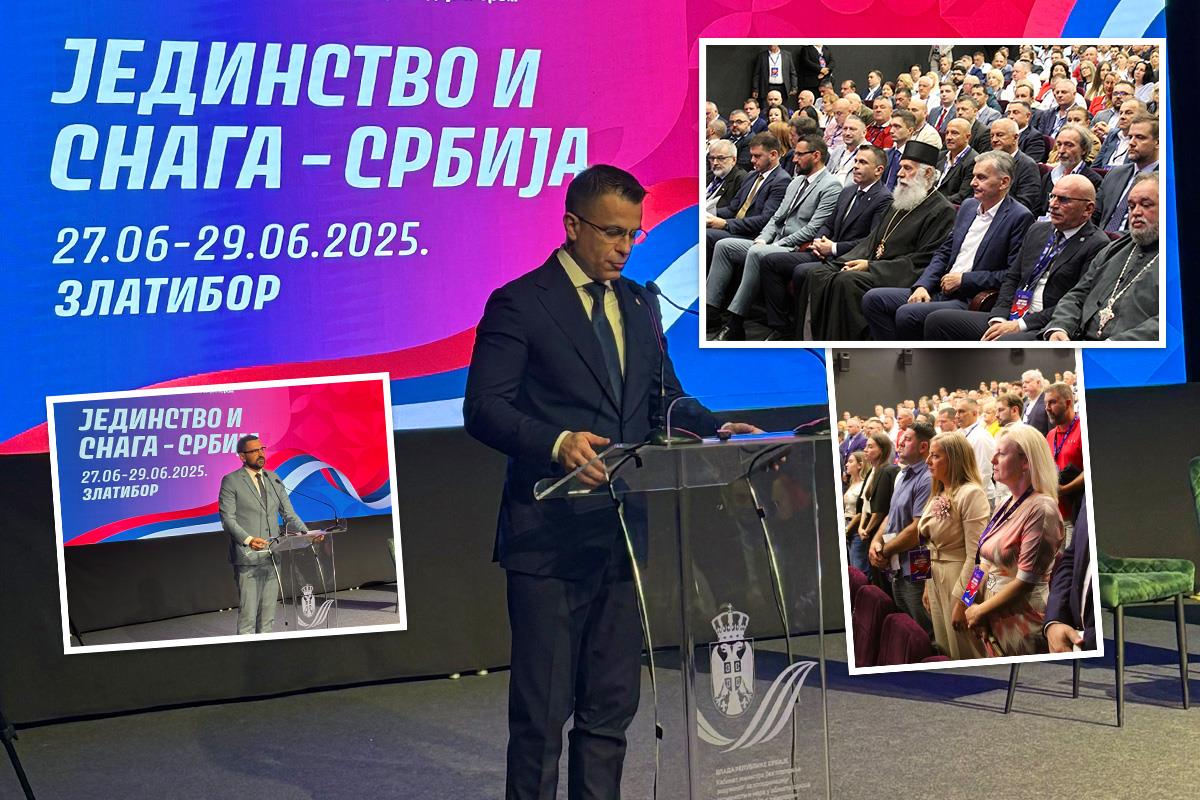This weekend, Zlatibor became the epicenter of Serbian unity, at least on paper. The event “Unity of Forces Serbia” gathered Serbs from the diaspora, along with political and religious leaders competing in patriotism and calls for unity. Vidovdan, a holiday with six centuries of tradition, served as the perfect occasion to celebrate national identity and emphasize the importance of ties with the homeland.
But is it all just empty rhetoric? While the Cultural Center of Zlatibor echoed with solemn speeches and blessings, the reality is far more complex. Serbs in Republika Srpska and Kosovo and Metohija still face challenges, violence, and pressures, while political elites often use such gatherings for political gain.
Đorđe Milićević, the minister responsible for diaspora affairs, took the opportunity to invite successful diaspora members to invest in Serbia and return home, while Milan Stamatović highlighted Zlatibor’s importance as a symbolic host city. Bishop Aleksej blessed the event, emphasizing spiritual strength and national unity.
However, while unity is celebrated, tensions and conflicts persist in northern Kosovo, and international agreements are being violated. Serbia claims neutrality and a desire for peace but sends a clear message that it will defend the rights of its people.
This Vidovdan is more than just a holiday – it’s a political gathering, a call for unity, and a reminder of an uncertain future. Will the diaspora truly be a partner in Serbia’s development or just an audience for political speeches? Will the problems of Serbs in the region be solved or remain mere words?
If you have thoughts on how Vidovdan and the diaspora are being used, or if you’re part of this story yourself, drop a comment below. Let’s hear voices from all sides!



















